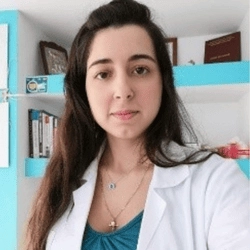
Santoriniou Maria-Georgia
Aristotle University of Thessaloniki, GreecePresentation Title:
Healing in motion: Multidimensional physiotherapy rehabilitation after COVID-19
Abstract
This study explores the contribution of physiotherapy to the recovery of individuals affected by COVID-19. Based on a review of relevant literature (PubMed, Medline, Google Scholar) and personal clinical insights, we focused on studies applying therapeutic exercise and early mobilization, especially in Intensive Care Units patients. Results showed improvements in muscle strength, endurance, and faster return to independence. Physiotherapy also contributed to reduced complications and better long-term outcomes. Its role in neuro-musculoskeletal and psychological recovery was significant. Early mobilization strategies proved especially effective in critical care settings. Overall, physical therapy was shown to be a key factor in post-COVID rehabilitation. A multidimensional approach is essential to address the complex sequelae of the disease. Rehabilitation should be prioritized to restore function and quality of life.
Biography
With my specialization in neuroscience, I analyze the complexity of the brain, focusing on neuroplasticity exercises, which are a significant tool for supporting and treating my patients. My primary goal is always to improve the functionality of individuals, with an emphasis on enhancing their quality of life. My objective is the ability to develop prognosis and rehabilitation plans for the effective management of the chronic nature of neurodegenerative diseases, neuromusculoskeletal conditions, as well as pediatric cases. I have nearly 6 years of experience as a physiotherapist in hospitals, clinics, rehabilitation centers, physiotherapy centers, in camps for people with disabilities (PWD), at K.D.A.P. for people with disabilities, and at a Day Care and Respite Center for people with disabilities, where I currently work alongside my academic role at the college.

